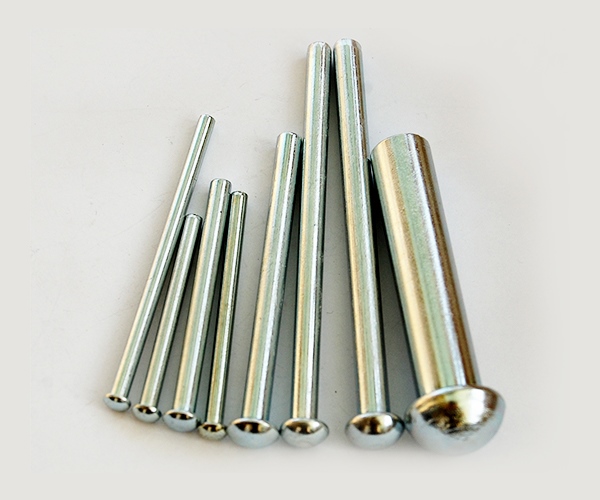Qingdao Haorui Steel Products Co., Ltd.
Mob: 15966945003
Contact: Yanan Wang
Tel: 0532-87881070
Fax: 0532-87980111
Email: wang@qdhaorui.com
Add: No. 375, Zhengyang East Road, Xifu Town, Chengyang District, Qingdao
What are the mechanical property requirements for self-tapping screws?
Self-tapping screws in standard products have a series of mechanical property requirements. The following mainly introduces the hardness requirements, carburized layer requirements, torque requirements, and screw-in tests.
1. Heart hardness: the standard value is HRC28-38, the measured value of our products is about HRC31-33. During the test, take the section 1-2 times the calling diameter from the tail. If the calling length is too short, it can be embedded first, and then the hardness can be measured.
2. Surface hardness: standard MIN HV450, the actual measurement of our products is about HV530.
3. Carburized layer: Standard 4#-6#: 0.05-0.18mm, 8#-12#: 0.10-0.23mm, 14#: 0.13-0.28mm.
The main purpose of carburizing is to enhance the surface hardness and ensure the strength of the teeth. If the decarburization is too deep and the carburization is insufficient, the strength of the teeth will not meet the requirements, that is, the teeth will be damaged during the screw-in test.
4. Torque:
standard | Specification | 4# | 5# | 6# | 7# | 8# | 10# | 12# | 14# |
A tooth | 14 | 21 | 28 | 35 | 45 | 56 | 96 | 145 | |
AB tooth | 14 | 21 | 28 | 35 | 45 | 65 | 102 | 165 |
5. Screw-in test: screw the self-tapping screw into a steel plate with a reserved test hole, the self-tapping screw should form a matching thread in the test plate, and
The thread of the screw itself is not deformed and damaged until the end taper thread completely passes the test plate. Screw-in test only
Used for self-tapping screws of AB, B, BP and other types.
It is stipulated in IFI that the test plate shall be prepared from semi-hard low-carbon cold-rolled steel, and the hardness of the steel plate is 70–85HRB in Rockwell. steel plate
The standard specification is the thickness shown in the table below, the test hole should be punched or drilled, and the tolerance is the specified nominal diameter (see the table below) ± 0.025mm.
Specification | 6# | 7# | 8# | 10# | 12# | 1/4 |
Test plate thickness (mm) | 1.85-1.95 | 3.12-3.23 | 4.68-4.84 | |||
Aperture (mm) ±0.025 | 2.95 | 3.26 | 3.45 | 4.04 | 4.76 | 5.50 |




